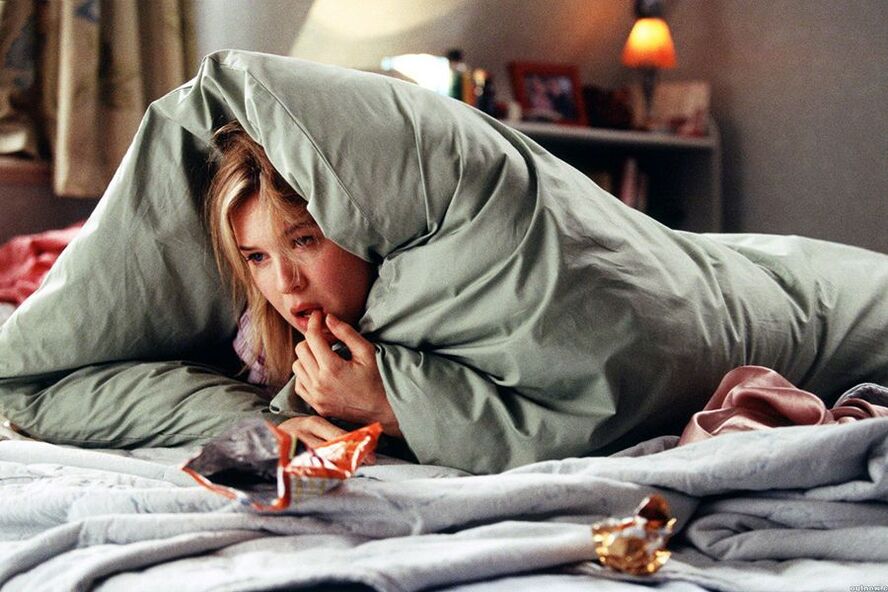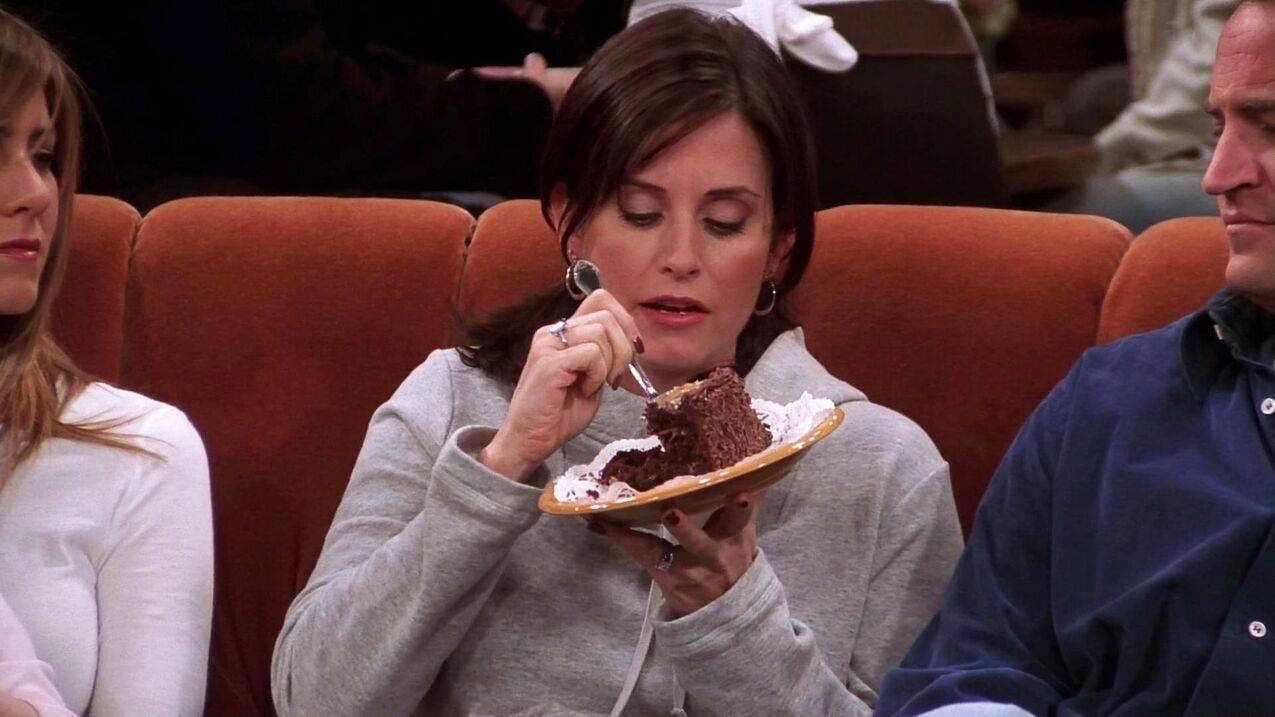
The title contains a popular query in search engines. But this article won't give advice like "count to 10 and drink a glass of water". Let's talk about something else: Why forcing yourself to eat to lose weight is a bad ideaand how to deal with your attitude towards food.
What's wrong with not eating to lose weight?
practicing psychologist: If you have a healthy approach to nutrition, you are in touch with your body – you listen to its signals and know how to interact with it. If the body signals hunger, you satisfy it; satiety, you stop eating. The message "don't eat to lose weight" means breaking this connection, confrontation with oneself and an expression of auto-aggression. It turns out that the goal (weight loss) is achievableTo do, you're taking measures against yourself. It's not goodheylethargic and unwellheyIn.
psychiatrist: Most people who lost weight as a result of a restrictive diet regain it within 1–2 years. Furthermore, 2/3 of them gained more than they lost.
Endocrinologist:The message to force yourself not to eat in order to lose weight is irrational. It's important to understand: What happens to the body? Perhaps this is not a matter of improper diet, but of hormonal characteristics.
And what is it all about - a healthy attitude towards food?
psychiatrist: This is when regular meals and snacks are not accompanied by anxiety, shame and guilt. Lack of "forbidden foods, " dieting and calorie counting. And when you allow yourself to enjoy the food.
Endocrinologist:It is about treating food as a prerequisite for a fulfilling, happy life. And not as a substitute for joy and pleasure.
practicing psychologist: this is when you eat out of hunger, stops when your stomach is full, does not focus on the shortcomings of your body, which should be "fixed" with food or denied itWhen you don't overeat, don't let emotions seize you.
Can you give more details on this? How and why do we eat emotions?
practicing psychologist: There are no good and bad feelings for the psyche, it can cope with anyone. For this he does not need food, alcohol, gadgets or TV. But there are situations when a person has put his feelings to food. Frustrated I ate a bowl of ice cream - it became easier. His behavior was positively reinforced and the person resorted to this tactic over and over again.
Consultant Psychologist:Many times people overeat because of lack of rest. Let me give you an example. A young woman came up with a problem: in the evening she eats a lot and cannot restrain herself. It turns out that she for threeworks, because she does not know how to refuse colleagues. There is no time to bite: business all the time. And in the evenings she can not eat. ie a person weakens himself, overworks himself, Is under stress all the time. How to make up for the lost energy? Burgers, potatoes, chocolate.
It turns out that if a person eats when they are bored, anxious, angry, tired or depressed, is it wrong?
Consultant Psychologist:In itself, this is neither good nor bad: food is inextricably linked with safety. Food for a newborn is not just food, but closeness to mother, peace, confidence, acceptance, love, communication. AdultsSometimes they eat to calm themselves down. It's bad when it's the only way to deal with anxiety or fear.
psychiatristFood: We satisfy various psychological needs. For example, having dinner with our family is intimacy. Going to a restaurant with friends takes away the need for social interaction. The problem arises when food is ourbecomes the crutch for negative experiences. This brings us to the topic of an eating disorder (EID) or an eating disorder. Psychiatry deals with these problems.
Wait wait! It turns out that if I ate a chocolate bar after an hour and felt guilty - is this already a disorder? Should I go straight to a psychiatrist?

practicing psychologist,Complex problem. There are situations when a person eats in a rush, disorderly, not paying attention to what he eats. Or he eats when he is not really hungry - out of boredom orFor company. It may just be an eating disorder that can be corrected with a nutritionist. But, at the same time, eating out of appetite is one of the symptoms of RIP. The line is very thin. And only one doctorOnly one can determine it. In our country a psychiatrist is engaged in this.
Endocrinologist:It happens that a person is constantly depressed, anxious, tired - and clings to these problems. Perhaps this is a consequence of constant stress. But they are also symptoms of endogenous depression and anxiety neurosis. A psychiatrist also deals with such conditions. included in the diagnosis.
But don't ERP - Bulimia and Anorexia? Difficult to confuse symptoms
psychiatrist: It is not just bulimia and anorexia. Eating disorders include psychogenic overeating (also called paroxysmal or compulsive), eating inedible food (Pix's disease), and loss of appetite. These are included in the International Classification of Diseases (ICD)There are disorders. However, there are disorders that are not included in this list, but also deserve the attention of psychotherapy: selective eating disorder, orthorexia (when the desire for a healthy lifestyle goes beyond all limits) and pregorexia (The strictest restrictive diet in pregnant women).
practicing psychologist: psychology also distinguishes overeating syndrome (BOE): when a person eats almost nothing throughout the day, cannot sleep for a long time, or gets up and wakes frequently, goes to the refrigerator.
Is obesity even an ERP?
psychiatrist: Not every time. There can be many reasons for this - these are genetics, and a sedentary lifestyle, and hormonal disruptions. It is not possible to compare RPP with obesity.
practicing psychologist: Yes I agree. There are people with perfectly healthy eating behaviors who are obese. And it happens the other way around - eg, patients with anorexia nervosa.
Heard that RPP's problem is mainly about women, teens and models? This is true?

Psychiatrist:Not at all. The disorder can develop in both men and women at any age. For example, selective eating disorder most often occurs in children - the child eats only certain foods.
practicing psychologist: Anorexia and bulimia are more common in women. But compulsive overeating - equally in men and women. So it is impossible to say that RPP is a purely female problem. And yes, teens, models, athletes who participate in beauty sports (rhythmicgymnastics, figure skating, sports dancing), TV presenters, bloggers, actresses - everyone who is in sight and whose work depends on appearance is at risk. But the problem can overtake any person, includingPeople living away from modeling business or beauty blogging are also included.
It is believed that any nutritional problem is an attempt to attract attention. Is it true?
practicing psychologist: there is such an opinion, but it is not scientifically substantiated. Yes, during treatment, it may turn out that RPP began when the person was not accepted by peers. For example, 13-15 yearsFor a girl, it is important that the boys look up to her and her friends approve of her, and so she follows a strict diet. It also happens that the feeding problem is the child's attempt to get the attention of the parents, oftenUnintentionally. But these are rather special cases. It is wrong to think that the main cause of eating disorders requires attention.
So what is the reason?
practicing psychologist: There are three groups of causes: biological, psychological and social. Biological - eg, a genetic predisposition to RPC - can, unfortunately, be inherited. Psychological - domestic violence, restriction of the expression of negative emotions, parental-Violation of the child's attachment (for example, if the child has a cold, detached from the parent). Social - the cult of ideals of beauty, thinness, bullying.
psychiatristA: There are certain personality traits that may contribute to the development of EID, such as perfectionism or hyperresponsiveness. The peculiarities of eating behavior in the family, also affect attitudes towards weight and figure. Good manners to the child and sweets to studycan be rewarded with, and it stuck: Since I'm good, you can take a candy. Too good? I'll take ten.
Consultant Psychologist:Many patients with ECD have experienced physical or sexual abuse. Also for many, food helps to elicit secondary benefits from the condition. For example, a client of mine needed to gain weight to protect herself from men. was needed. During therapy, we learned that at school age the girl had gotten into an unpleasant situation with an adult man. The client was surprised that she remembered it: the story seemed to be "forgotten", but in adulthoodcontinued to influence the girl's behavior. He also revealed the belief that men only like skinny guys. If so, the extra weight helped her "stay safe, " that is, without men.
How common are eating disorders in society?

psychiatristWorldwide: The prevalence of RPC is thought to be around 9%. In risk groups, the prevalence is higher. Studies of adolescent girls have reported that by the age of 20, about 13% have symptoms of CRP. OnlyNext to chemical addiction, anorexia is one of the deadly mental disorders.
practicing psychologistIt is difficult to give exact numbers: People with PAD often don't understand at all that they need help. The numbers are there for the United States, because it is a center for eating disorders research and statistics: Eating disordersThere are approximately 30 million people living with it. There are twice as many women as men (20 million vs. 10 million). And every hour in the world at least 1 person dies as a result of RPE.
What are the symptoms of RPE? Can I diagnose this myself?
psychiatrist: Generally, the main symptoms are as follows:
- A person vomits himself after eating or compensates for what he has eaten by other means, for example, excessive physical exertion (physical abstinence), laxatives and diuretics.
- Strong fixation on weight and figure (you can not add / lose a gram or a centimeter! ).
- Several attempts to reduce fluctuations in weight and body weight.
- Many rules in nutrition (I eat only protein, only vegetable, only red).
- Persistent thoughts related to food intake and body weight, feeling of fear and guilt and shame. When thoughts and behaviors related to food bring a lot of suffering.
- Loss of control over the amount of food consumed.
But many may have such symptoms to varying degrees. Is there a more accurate diagnosis?
Endocrinologist:RPD is a systemic chronic disease. It causes metabolic changes in systems and organs, changes in human neurohumoral regulation. It is a complex problem that can manifest itself in neurosis, organic pathology of the brain, organic lesions and depressive disorders.
But first you need to determine the cause of the symptoms. For example, if a person runs into the refrigerator at night, you need to find out the level of glycogen to exclude insulin resistance and type 2 diabetes mellitus.
What if you find out that you or your loved one has RPP?
practicing psychologist: if you have - consult a psychiatrist for diagnosis. If you suspect RPP in a loved one, it is more difficult: he often refuses, not wanting to admit that something is wrong with him. moreUnnecessary pressure can break trust. Let your loved one know that you are on their side, ready to help and support.
Who Treats ECD? Only one psychiatrist?
psychiatrist: No. A psychiatrist makes the diagnosis. And depending on the disease, a psychiatrist, psychotherapist, clinical psychologist (as prescribed by a psychiatrist) heals. Why is it so important to see a psychiatrist in the first place? Because it can manifest concomitant conditions such as depression or anxiety disorders, which are found in about 80% of cases in people with RPD. Treatment depends on the severity of the disease. This psychotherapy (group, cognitive-behavioral, dialectical behavior)Drug therapy may occur in combination with. Family therapy is also recommended.
Consultant Psychologist:Anorexia and bulimia are treated mainly by a psychiatrist. Emotional overeating - psychologist, counselor psychologist. Obesity - a nutritionist-endocrinologist with a psychologist or psychiatrist (you need to check hormones, whether metabolism is disturbed).














































































